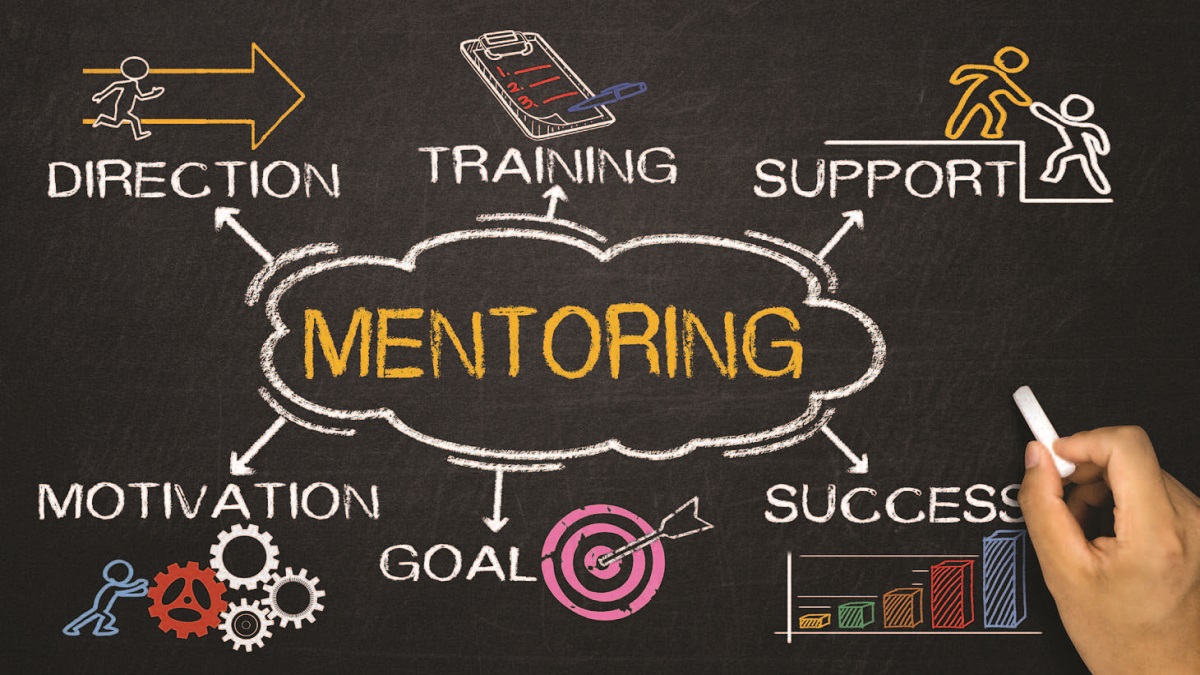“Leadership and learning are indispensable to each other” John F. Kennedy.
Learning is a life long process and a good leader is cognisant of the fact that without being subjected to a proper coaching and mentorship he could never lead an organization.
Coaching and mentorship can play an important role in leadership development by providing aspiring or current leaders with guidance, support, and feedback.
Coaching is typically a one-on-one relationship between a coach and a leader with the goal of assisting the leader in identifying and achieving personal and professional goals. The coach may offer specific skill or behaviour advice, assist the leader in developing a plan of action, and provide ongoing support and accountability. Coaching can be especially beneficial for leaders who are facing a new challenge, taking on a new role, or looking to improve their performance in a particular area.
Mentorship, on the other hand, is characterized by a more casual relationship between a more experienced leader (the mentor) and a less experienced leader (the mentee). Based on their own experiences, the mentor may provide guidance and advice, share their network and resources, and provide feedback on the mentee’s progress. Mentorship can be especially beneficial for aspiring leaders who want to improve their leadership skills and gain insight into the challenges and opportunities that come with the job.
The Performance Paradigm of the Future
Over time, performance management has evolved from a carrot-and-stick approach to a developmental focus. The lines between performance management and learning and development are rapidly blurring as new skills are required to navigate the new normal. The corporate leadership training ethos is now more ‘direct-and-develop’ than ‘command-and-control,’ in an effort to unleash employees’ innovation, energy, and commitment. As learning has become more democratized and digitalized, organizations have been forced to expand their learning offerings to include newer tools such as learning management software, coaching mentoring, virtual classroom platforms, and holistic learning-experience platforms.
The Importance of Coaching-Mentoring as a Tool for Leadership Development
Today, developing leaders is a cross-organizational activity that is not limited to the top tiers of the corporate hierarchy. Mid-level managers are expected to lead in their own right as hierarchical silos disintegrate in a hyper-connected, digital era. In fact, there is a fundamental shift occurring in the manager-role; the manager’s role is evolving into that of a coach. The modern manager is expected to ask questions rather than provide answers, to support employees rather than judge them, and to facilitate the development of their teams rather than dictating what must be done. As a result, coaching and mentoring are used for leadership development at all levels, from mid-level to senior-level employees.
The attitude towards capability development is another significant transformation driving the need for coaching-mentoring. Organizations have recognised that continuous learning is the only way to remain relevant and future-ready, and as a result, coaching-mentoring may prove to be a powerful tool for cultivating a continuous learning culture.
What is better for your employees: coaching or mentoring?
To use coaching and mentoring effectively for leadership development training, it is critical to understand how they differ. Coaching focuses on developing specific Knowledge, Skills, and Attitudes (KSA), making it more performance-based or role-based for the needs of the moment. Mentoring, on the other hand, is more relationship-based and focuses on holistic development, including professional, personal, and even spiritual development; it is also more ongoing. These distinctions complement one another, making both approaches valuable and necessary in the development of long-term leaders. It is up to L&D to blend the two effectively and create a powerful, unrivalled offering for developing future leaders.
While traditional coaching and mentoring concepts still apply, the rise of future-skills such as digital skills and social skills provides organisations with the opportunity to institutionalise reverse-mentoring- a concept in which young employees who are digital natives (such as millennials) coach older employees on new-age skills.
Read More: Impact Of Skilled Labour Shortages On Construction Industry – About Pakistan
Incorporating Coaching-Mentoring into Leadership Development Strategies
To truly integrate coaching and mentoring into executive leadership training, L&D professionals must carefully curate the finer details along the way.
Coaching-mentoring Process Formalization:
This includes outlining the coaching-mentoring requirement, designing or sourcing the appropriate tool, and implementing the solution in stages. A formalised coaching process that incorporates process steps into the learning tool is the most effective way to make a genuine skill-building impact.
Building a Coaching Culture:
Coaching must be embedded in the nuances of organisational learning, particularly in executive development programmes and processes. Only then can it result in genuine and long-term skill improvement. This is only possible if leaders act as futuristic learning icons and become coaches/mentors to support and guide employees. Streamlining the process aspect is a fundamental hygiene factor, but L&D must place a much greater emphasis on the people aspect. L&D leaders must drive a mind-set shift, which requires them to promote values such as openness and transparency, collaboration, shared learning, and so on. Encouraging developmental dialogue among people is critical to the success of coaching and mentoring. Coaching-mentoring readiness necessitates a very different set of values and behaviours, which must then be incorporated into a coaching environment.
Coaching as a Business Capability
Organizations must treat coaching-mentoring as a capability in and of itself in order to instil the right values and behaviours and foster such a culture. This means that coaching-mentoring must be regarded as a core managerial skill in order for managers and coaches to truly relate to the coaching culture and take proactive steps to become effective coaches and mentors. Coaching and mentoring, for example, require significant manager time and attention, and in the business of day-to-day work, coaching-mentoring may slip. As a result, it is critical to educate managers on the “why,” i.e. show them the purpose. Managers and leaders may be able to see the collateral benefits of coaching-mentoring more clearly when they coach or mentor with a clear purpose.
Top-down inspiration is also effective, as it can make people realise that coaching-mentoring is a core organisational capability by creating “coaching-mentoring models” in top leadership and constantly communicating how they connect with employees. Finally, L&D must empower managers and leaders by making powerful digital tools available and accessible. Coach-mentoring tools that incorporate emerging technologies such as Big Data and Artificial Intelligence can provide managers with real-time performance data. This, in turn, may encourage them to abandon employee monitoring and control in favour of a more developmental and democratic people-management approach. To encourage actual adoption, HR must train managers on how to use and navigate modules on learning tools and platforms, ideally across multiple devices.
The creation of a ‘pull’ towards coaching-mentoring begins with a seamless user experience.
Above all, coaching-mentoring learning actions must be well-integrated with other talent functions and systems, such as performance management systems, learning systems, total rewards systems, HRMS, and so on, in order to be considered a core organisational capability.
Coaching and mentoring are not one-time interventions; they require the time, effort, and investment of employees, managers, and leaders alike. To truly incorporate coaching-mentoring into the leadership development strategy, L&D must maintain the CXO suite’s support. L&D must develop a strong business case so that the cause of leadership development is shared by business, L&D, HR, and top management, rather than just L&D personnel.
Read More: Benefits Of Entrepreneurship And Small Business Development – About Pakistan
Bottom Line
Coaching and mentorship can both be beneficial tools for leadership development because they provide personalized support and guidance that can assist leaders in achieving their goals and improving their performance. Leaders can gain new perspectives, develop new skills, and build the confidence and resilience required to succeed in today’s complex and ever-changing business environment by working with a coach or mentor.





















